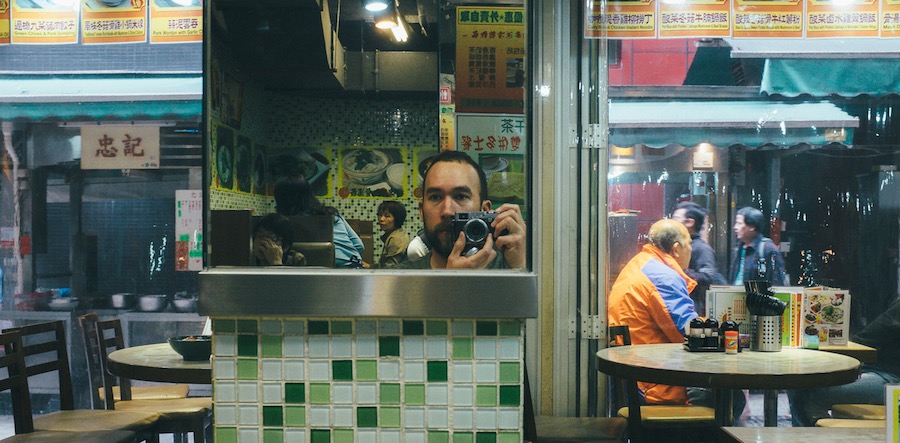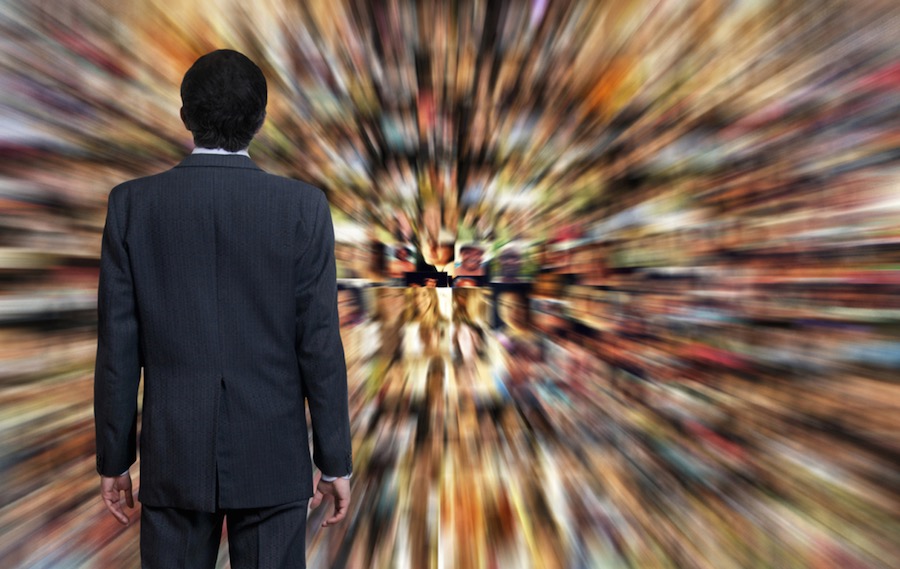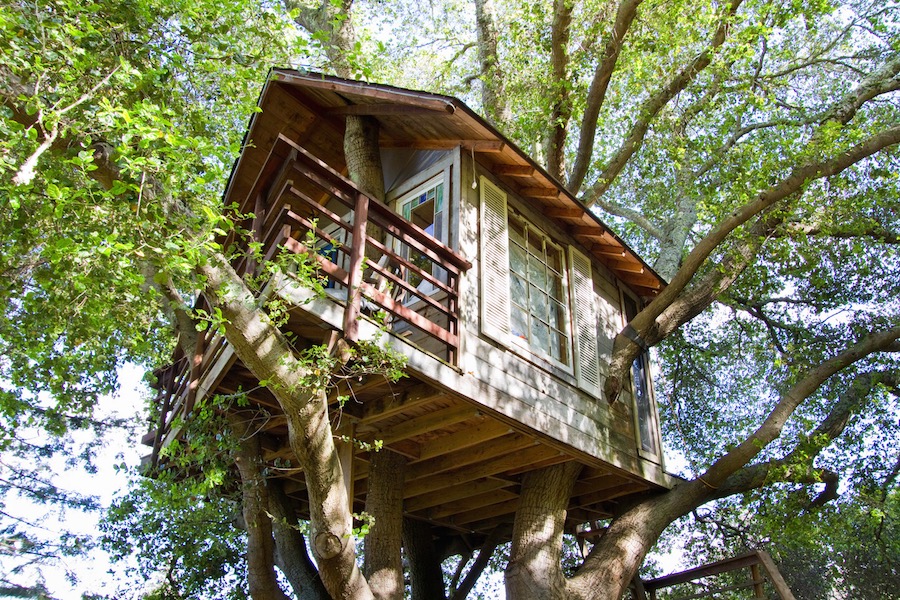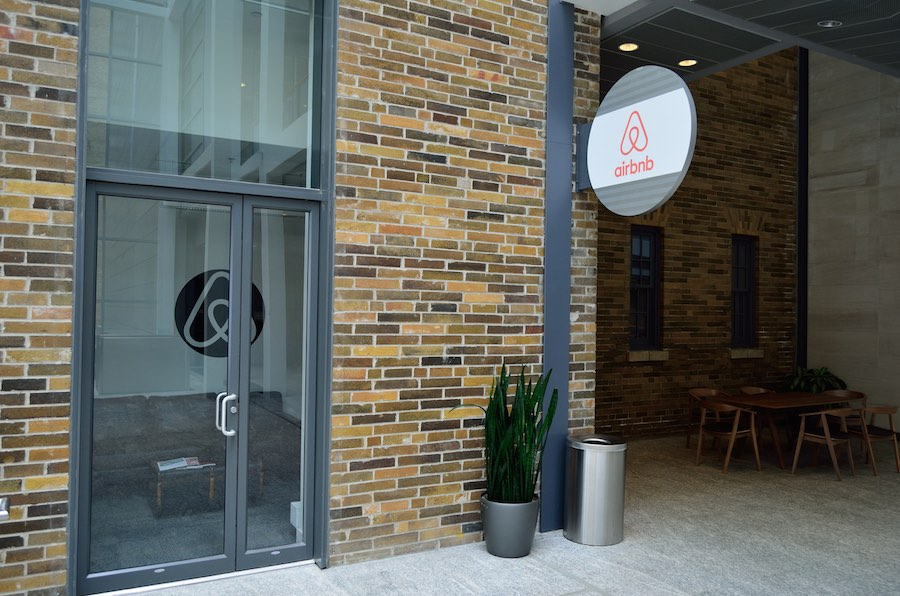
Our experiences are heightened when we travel. Removed from our day-to-day rituals and familiar terrain, even the most pedestrian things – street signs, passersby, sidewalk cafes – can become fascinating.
But in the age of Google Street View and the relentless posting of holiday snaps on Instagram and Facebook, experiencing unfamiliarity has become harder.
Social media is reconfiguring our experience of the city, and tapping into our increasing appetite for unique and authentic urban experiences.
Architectural icons in the age of social media
In The Work of Art in the Age of Mechanical Reproduction (1936), Walter Benjamin argues that artworks embody an “aura” – a kind of authenticity that cannot be captured in a reproduction. Each time an artwork is reproduced through film or photography, the cultural value of the original is diluted.
From our partners:
Architect Hans Hollein made a similar observation in response to the increasing access to television in the 1960s:
“It is almost of no importance if […] the pyramids exist in physical reality, as most people are aware of them through other media anyway.”
Benjamin and Hollein’s concerns for the dwindling cultural value of the original has never been truer than in the current image-saturated context of social media.

We have exhausted our global architectural icons – they have been reduced to photogenic backdrops for our selfies. We want to be seen at these sites because they allow our audiences to instantly locate us. But, as cultural experiences, they have become empty and clichéd.
Whether coincidentally, or strategically, Airbnb’s appearance is well-timed. In the company’s Mankind, Belong Anywhere marketing strategy, Airbnb promises something much more immersive: a day in the life of a local.
Interpreting buildings: from spectator to participant through Airbnb
It is widely acknowledged that there is a shift in mentality among Millennials, who privilege the consumption of experience over the consumption of material things. We could understand our changing relationship with buildings as an extension of this logic.
In Learning from Las Vegas (1972), Robert Venturi and Denise Scott Brown investigated the architectural strategies casinos developed in response to the drive-by experience of tourists to the Strip.
They categorised buildings into Ducks and Decorated Sheds. By their terms, Ducks are architectural icons whose meaning is conveyed through their form. Sheds are everyday generic buildings, whose meanings are conveyed through applied signage.
But through platforms such as Airbnb, we are no longer spectators reading a visual language. Meaning is derived through experience, through our active participation.
We are invited to interchangeably experience the ordinary and the extraordinary varieties. Both the Le Corbusier-designed apartment and the suburban bungalow are up for grabs.

Airbnb reconfiguring the city
Airbnb has reprogrammed the city. The “hardware” or urban fabric remains the same, but the “software” – our use of it – has been radically reconfigured.
European summers have traditionally seen an influx of tourists to historical centres, while the local populations – the majority of whom live outside the centre – vacate to escape the summer heat. Rather than leaving their homes vulnerable and losing money on rent, many locals are choosing to sublet.
As a result, everyday neighbourhoods that would typically be in lock-down during this period have reawakened. The decentralised activity provides incentive for local businesses to continue their operation, and more eyes on the street.
Opening up the tourism industry to grassroots entrepreneurs has been a democratising process. With the redistribution of available accommodation across the city, our urban experience has changed.

A mapping exercise comparing the location of hotels to Airbnb stays in Brisbane in September suggests that the online platform offers a much more diffuse and a largely suburban experience. This is in direct opposition to the almost exclusively urban experience indicated by the concentration of hotels in the centre.
Adding to the allure is that the Airbnb map is always in a state of flux. Tourists may never experience the city in the same way twice. To this effect, the psychology of Airbnb is similar to that of the ephemeral pop-up. The “ordinary” and everyday “back regions” – now much more accessible – have become the fresh, unchartered territory for exploration.

Each year, governments around the world pour huge amounts of money into the anachronistic preservation and maintenance of historic city centres primarily for the tourist market. Has Airbnb burst the “Disneyland” bubble that has enveloped our historical centres, governing their image and operations for export?
Since Airbnb, the traditional spatial division between urban tourist and the suburban local has been ruptured.
It remains to be seen whether this leads to positive urban outcomes such as the upgrading of infrastructure for our greater metropolitan areas, or whether the “city-as-a-themepark” analogy will persist and spread, sanitising and homogenising our everyday neighbourhoods.
Architectural implications
Certainly, the impacts of Airbnb on architectural typologies are already tangible. We are witnessing a shift towards new and modified residential configurations to accommodate co-habitation or dual occupation which, increasingly, may start to drive housing diversity.
Another product of the Airbnb phenomenon is the revival of urban “existenzminimum”: making use of existing left-over spaces that are plainly too small for long-term rental but that resonate and fetch a good price with experience-seeking Airbnb guests.
The more sinister flipside could be the perpetuation of unregulated, high-density apartments. The potential is for such properties to be designed as investments to maximise profits with little or no regard for their presently “itinerant” tenants, or future legacy.

As with the taxi industry after Uber, there has been much speculation about the impact of informal tourism on the hotel industry. Researchers have argued that while Airbnb lowers the financial barriers for travel and will appeal to adventurist tourists, hotels will continue to attract business travellers.
Consolidating attraction and accommodation
But there is evidence that hotels are also responding to the shift in the market towards an “experience economy”. Melbourne-based entrepreneurs responsible for a number of successful bars in the CBD have reconceptualised the hotel experience around “luxury camping.”
A one-night stay in a luxury tent pitched on top of an urban shopping mall costs A$450, roughly equivalent in price to a junior suite with bay views at a five-star hotel, and without the necessary infrastructure and overheads.
The camping experience gives weight to the argument that, despite the changing nature of tourism, our cities have not yet escaped theme-park status. Only now, the attraction is the accommodation, and it is becoming more elaborate in step with the desires of today’s more sophisticated tourist.
While both the camping hotel and Airbnb promise “unique” new perspectives and exploit temporality to their advantage, the Airbnb brand is one built on everyday authenticity, and a sharing economy.
But the company’s recent acquisition of the tunnels in the Parisian Catacombs for €350,000 in time for Halloween suggests that it could be moving away from this pitch, towards something truly frightening. This brings the revelation that Airbnb is not simply operating as a platform for the publicity of our private spaces, but are also doing the exact opposite: privatising our public spaces.
The acquisition might provide a window into the future of our “tired” global architectural icons – their death and rebirth as part of a privatised, consolidated approach to attraction and accommodation.
This feature originally appeared in The Conversation.















